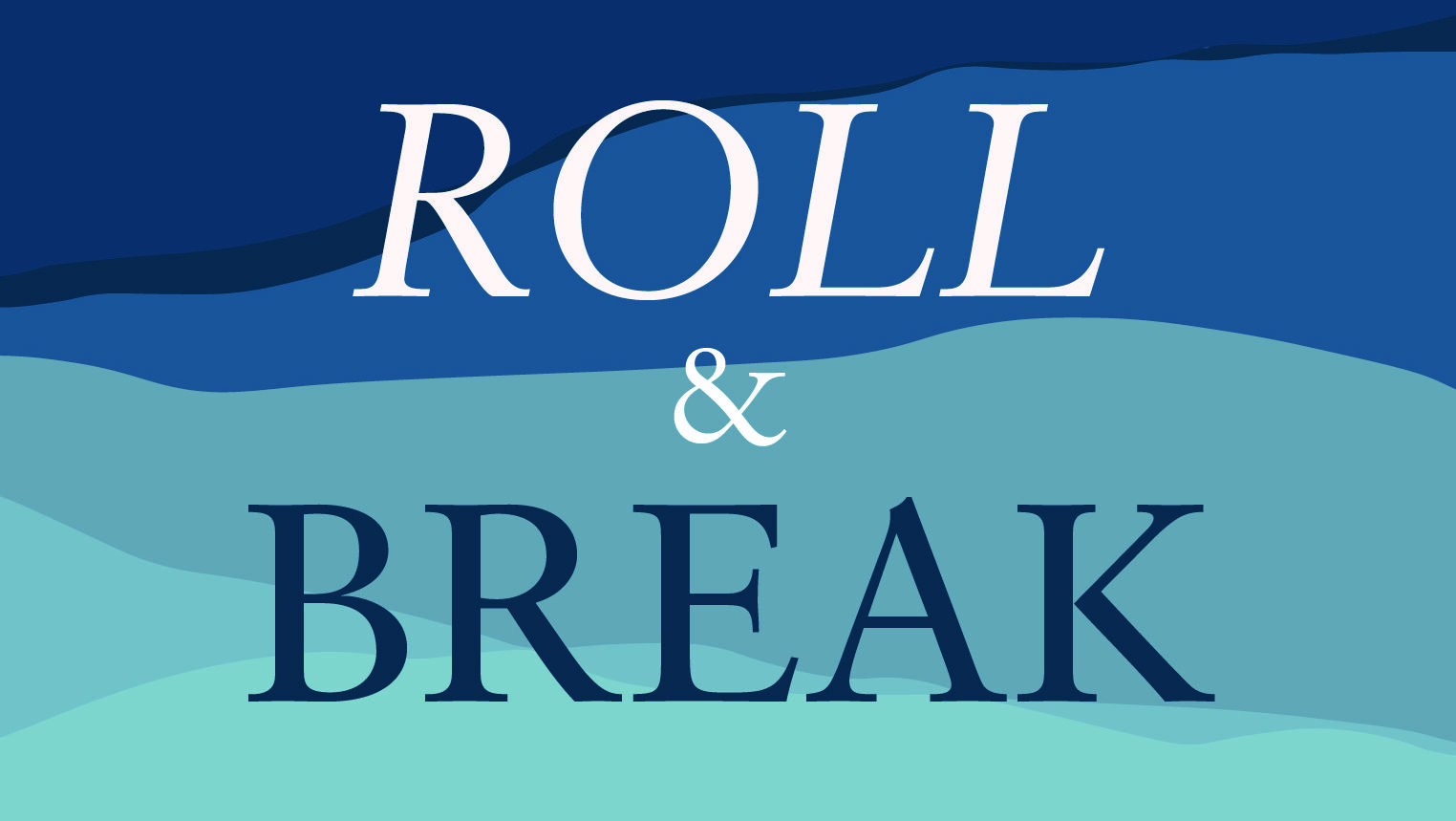Note: bad apple Lead Editor, Damien Levi, was involved in the production of this book, however, this review was conducted by an unbiased and impartial external reviewer.
RolI & Break is the fourth collection of poetry by Adrienne Jansen, published by Landing Press. Each poem centres around her local beach, Tītahi Bay, bringing to life its “history, stories, colourful characters and sheer beauty.” The poems tell of common features of a beach: the “shouting blue” (‘How would Van Gogh paint our beach?’) and “glassy mud” (‘Two women and a bucket’), but to me, it is human connection that remains most central to these poems.
In the acknowledgements of the book, Adrienne states that for her writing is usually a collaborative effort, but that this book was more solitary for her. Perhaps this is why the connections she has made and examines are so prominent to me. Some of the stories have come from history, others have been told to Adrienne by friends, and some still born from her imagination.
In ‘Travelling Light’, the opening poem, Adrienne writes of an encounter on the beach. She sees a woman bathed in light, and when the two walk past each other and wave, with the other laughing. Adrienne writes:
A woman who walks at the edge,
on light, would laugh.
The joy of this imagery is a perfect way to begin the collection. I love when poetry takes a small moment of mundane life and turns it into an eternal image. Having the collection start with such a pleasant one welcomes you, the reader, into the rest of the collection. Perhaps it is wise for Adrienne to start Roll & Break with such a poem to ease its readers into the human experience, as several of its successors have much starker and sadder subject matters.
One with darker themes is the directly named ‘Mother, son, suicide’, Adrienne examines a tragedy. Of the event, no detail is given, but we are told of what happened before, and of the calm waters in the morning after. The poem ends with a sobering couple of lines:
There is no end, you said,
to the worst of it.
Much like the waxing and waning of the tide, grief never ends. While the grief in this poem is not directly the speaker of the poem’s, it is held with the same magnitude as if it were. The poem, with the setting of the beach, is a reflection of connection and comforting. With saying so little it conveys a lot.
Another such poem is ‘You can drown on a beach’. It tells of the danger of the ocean, and makes real the risk of drowning. In it Adrienne writes:
You can’t breathe. You hear nothing.
There is only the roll and scrape.
This poem acts as a warning, or a reverence, of the ocean. The raw power of nature is perhaps best represented by the crashing waves of a windy beach. So much of our lives revolve around the ocean: food, travel, social activity, sport, relaxation. Sometimes it can be taken for granted as a constant source that will always be there for us to enjoy, but nature does not adhere to the needs or wants of humanity. It was here before us, and will be here after us, and as Adrienne writes, “there is only the roll and scrape.”
Roll & Break is a collection that celebrates the ocean. It explores the connections we have with each other along that forever-changing landscape. Some of our experiences are calm or joyful, while others rage with grief. Adrienne captures these moments within images drawing from our histories and conversations. As a collection, it succeeds in its overall mission statement, and each poem is powerful as an individual piece. If you’re looking for a book to take with you on your first beach day of the year, look no further.
Roll & Break is available for purchase from Monday 2 October in book stores or online through Landing Press.
Featured image courtesy of Landing Press.



